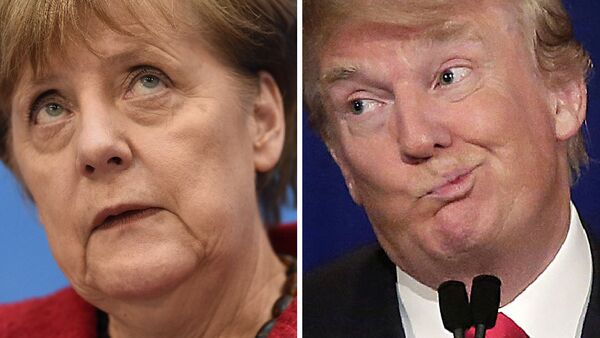MUNICH (Sputnik) — On Wednesday, US Defense Secretary James Mattis threatened to cut US defense commitments unless all NATO members met the spending target. New US President Donald Trump criticized the alliance on numerous occasions during his election campaign, calling it obsolete and vowing to make all members pay their fair share.
"Defense capacity of the European Union must never be seen as an alternative to NATO, rather it must complement it, it must be integrated within overall alliance," Merkel said.
Only a handful of NATO members have reached the 2-percent target as of 2016. The United States is the top spender, allocating over 3.6 percent of its GDP on defense, followed by Greece, the United Kingdom, Estonia and Poland. The remaining 23 members are below target.
NATO's overall European defense spending fell at rates of around 2 percent per year until the 2014 Wales summit. In 2015, spending increased 0.6 percent before surging 3 percent in 2016, according to official NATO data.
NATO Significance Increased
NATO's significance increased after the situation in Crimea and the east of Ukraine, German Chancellor Angela Merkel said.
"I would like to mention that the importance of NATO, that I have to admit with sadness, grew through the annexation of Crimea but also through the conflict in the Eastern Ukraine," Merkel said.
Relations between NATO and Russia deteriorated in 2014 after the Crimea held a referendum, in which a majority of citizens voted to join Russia. The West has accused Russia of military aggression in Ukraine, the allegations Moscow has repeatedly denied.
Since then, NATO has been building up its military presence in Europe, particularly in the Eastern European countries bordering Russia, citing Moscow's alleged interference in Ukraine.



